Over the course of the full-scale Russian-Ukrainian war, 48 exchanges of prisoners of war took place, as a result of which about 2,600 Ukrainians returned home. However, many of Ukraine's defenders are still in Russian captivity, so the issue of prisoners of war remains extremely sensitive for Ukrainian society. The main part of Ukrinform's interview with Andrii Yusov, a representative of the Defence Intelligence of Ukraine and the Coordination Headquarters for the Treatment of Prisoners of War, is devoted to this topic.
At the same time, many other topical issues were raised during the conversation: the DIU's special operation in Crimea, implemented with the support of the Ukrainian Navy, the transfer of nuclear warheads from the Russian Federation to the Republic of Belarus, the situation at the Zaporizhzhia Nuclear Power Plant, internal conflicts in Russia, the plane crash in the Tver region of the Russian Federation, which allegedly killed the leader of the Wagner PMC Yevhen Prygozhyn, as well as the intensification of Russian propaganda in Ukraine and around the world. Details are in the text of the interview.
NEGOTIATIONS ON THE EXCHANGE OF PRISONERS ARE MOSTLY BILATERAL - DIRECTLY BETWEEN UKRAINE AND RUSSIA
- How many Ukrainian servicemen are currently in Russian captivity?
- We do not disclose this data because the exchange negotiations are ongoing. This is sensitive information.
- How is their accounting done?
- The National Information Bureau is working on this. There is also the Register of the Coordination Headquarters for the Treatment of Prisoners of War. All data is transferred to the units where our defenders serve. The National Police passes the information to the families when proceedings have already been initiated.
We collect all the data, both about those confirmed by the International Committee of the Red Cross and from other sources. For example, there are testimonies of people who have been released from captivity, photo and video materials, including those from Russian propaganda. All of this is taken into account to establish the fact that a Ukrainian defender is in enemy captivity.
- How are prisoner exchange negotiations conducted? Which partner countries act as intermediaries in this process?
- Ukraine would be happy if there were more effective intermediary countries, but unfortunately, this is mostly a bilateral format - Ukraine works with representatives of the aggressor state on the exchange.
- What is the principle of exchanges? As you know, some prisoners are exchanged quite quickly, and some are waiting for a long time...
- There are very different cases. Russia refuses to hand over many Ukrainian prisoners without any explanation. Some of them have fictitious criminal cases or sentences.
Finally, in different cases, Ukraine is negotiating with different entities. For example, it is no longer a secret that there were separate negotiations with the Wagner PMC on the exchange of prisoners. They were quite effective.
There are also some "field" stories. Of course, then someone is lucky to be held captive for a shorter period of time.
But there is no formula for the exchange. Unfortunately, we are dealing with a state that often ignores international law and the Geneva Conventions.
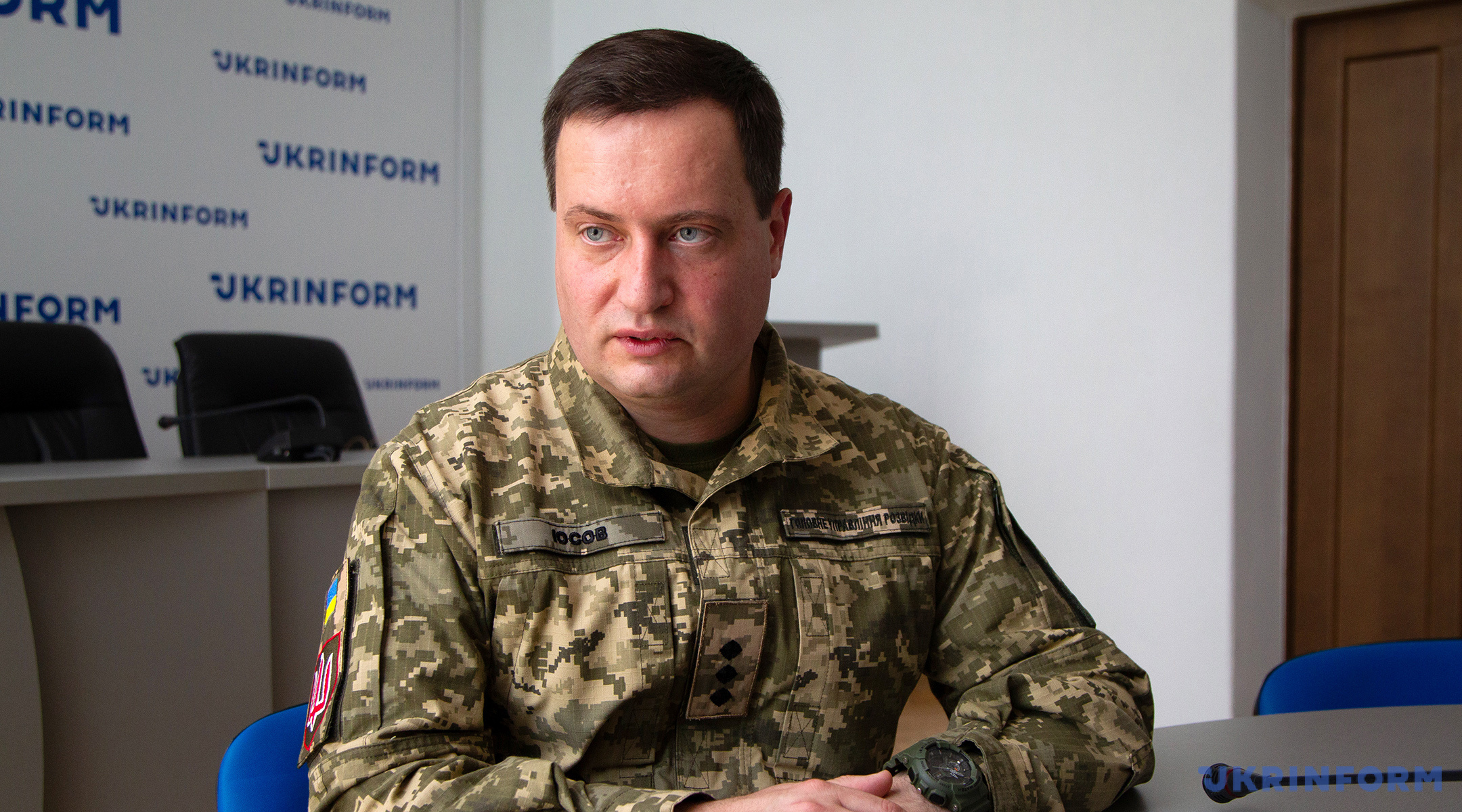
UKRAINE RETURNS AND WILL CONTINUE TO RETURN THE DEFENDERS OF MARIUPOL AND OTHER CITIES FROM CAPTIVITY
- How are the negotiations on the return of Mariupol's defenders from captivity progressing?
- Ukraine is returning and will continue to return the defenders of Mariupol and other cities from captivity. The very fact that about 2,600 defenders have returned home in the midst of a full-scale war is already an indicator. Few people have such experience, because the Geneva Conventions do not provide for mandatory exchanges of prisoners during war. However, Ukraine is not waiting for the end of hostilities. Ukraine is already returning its people.
- The Russian invaders continue to illegally convict captured Ukrainian soldiers, including the Azovs. How will Ukraine return them? Under what conditions is this possible?
- As well as all other Ukrainian defenders, including those allegedly convicted by Russian courts. After all, we also investigate, try and convict the Russian military.
Russia is returning Ukrainian prisoners of war and will continue to do so. In particular, for its own reasons, both domestic political and security. There are also Russian prisoners of war in Ukrainian captivity. And the number of them has increased significantly in recent years.
THE "ALL-FOR-ALL" EXCHANGE FORMAT DOES NOT REQUIRE PARITY IN THE NUMBER OF PRISONERS
- What is the likelihood of an all-for-all prisoner exchange?
- This is not a probability. This is a task that is being worked on. However, we cannot say that this is a matter of the next few days.
- To apply the relevant mechanism, is it necessary to have parity in the number of prisoners?
- No, of course not. We are talking about international law. The Geneva Conventions provide a mechanism for the return of all prisoners.
- In the event of an exchange in this format, what is the guarantee that Russia will return absolutely all Ukrainian prisoners of war?
- What guarantee? From whom do you want to get a guarantee? From Putin? The only guarantees are our professional negotiating position and comprehensive work, Ukraine will not abandon anyone.
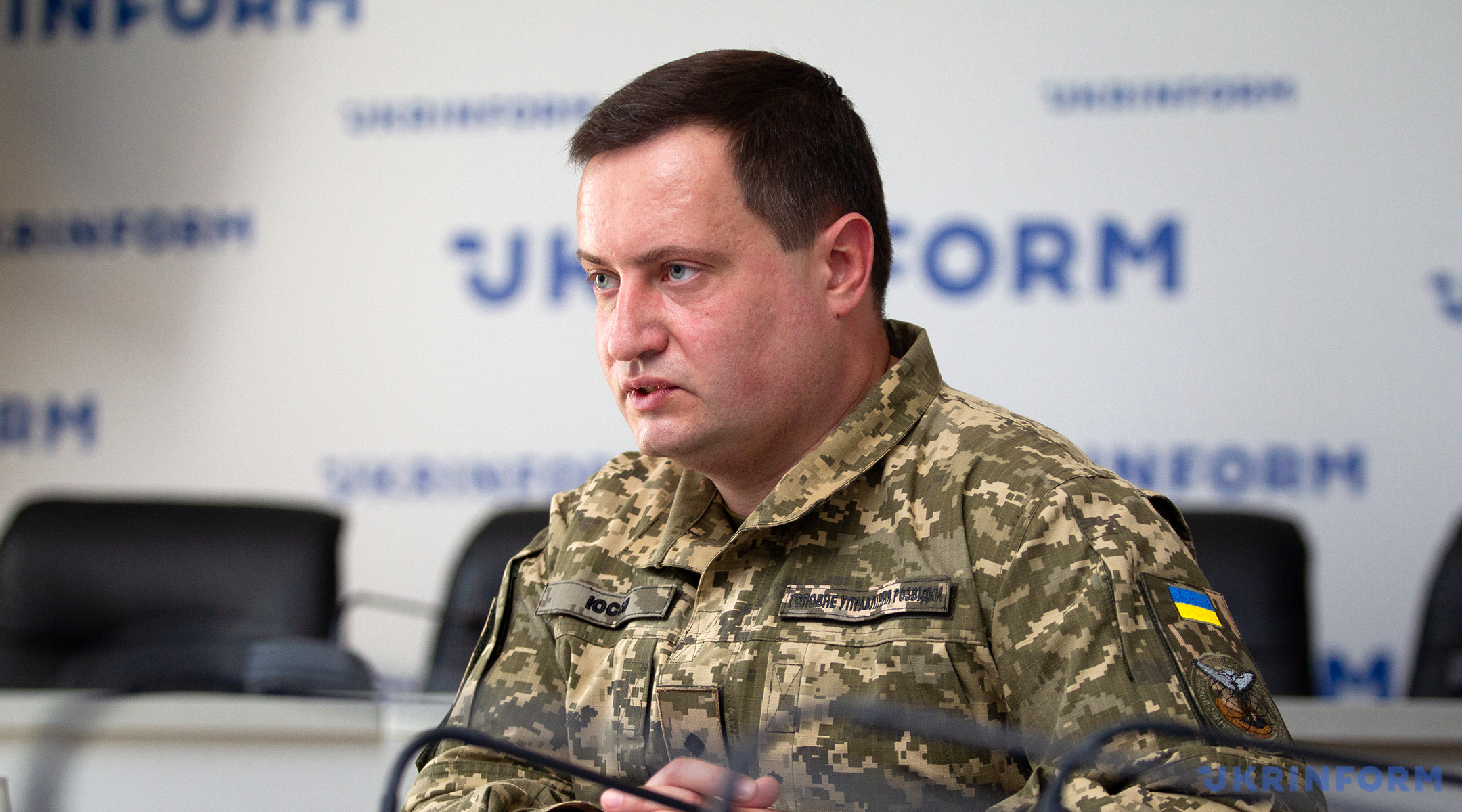
VIOLATIONS OF THE RIGHTS OF UKRAINIAN PRISONERS OF WAR IN RUSSIA ARE NOT ISOLATED CASES
- During the full-scale war, 48 exchanges took place, and about 2,600 citizens were returned to Ukraine from Russian captivity. What percentage of the liberated Ukrainian soldiers were tortured in enemy captivity?
- We won't talk about the percentage, but violations of the rights of our prisoners of war in Russian captivity are not isolated cases.
- Does the state ensure the rehabilitation process of servicemen liberated from captivity? How does it work?
- The medical troops and the entire healthcare system, the Security and Defense Forces are working on this. There is a process of rehabilitation and recovery, including abroad. Psychological assistance is also provided. All protocols are followed.
HUNDREDS OF RUSSIAN SOLDIERS VOLUNTARILY SURRENDERED IN A YEAR THANKS TO THE "I WANT TO LIVE" PROJECT
- Over the past year, the Ukrainian project "I Want to Live" (the only center for receiving applications from Russian soldiers to surrender) has received more than 22,000 applications. How many servicemen of the Russian Federation surrendered thanks to this project?
- We are talking about hundreds.
UKRAINIAN SPECIAL OPERATION IN CRIMEA CONTINUES
- On August 23, the Defence Intelligence of Ukraine showed a video of the destruction of the S-400 Triumph air defense system in Crimea. How will this affect the Ukrainian offensive?
- This is already affecting the further actions of Ukrainian defenders. In particular, on the territory of the temporarily occupied Crimea, because this system was supposed to cover certain actions of the occupiers. Its neutralization is a success for Ukraine, which will allow further operations.
- Can the Russians quickly restore these weapons?
- No, it cannot be restored quickly. And, in principle, the invaders' stock of S-400 systems is quite limited.
- On Ukraine's Independence Day, Ukrainian troops landed on Cape Tarkhankut in the temporarily occupied Crimea, and a battle took place involving watercraft and aircraft. Can we talk about the details of this special operation?
- This set of measures is currently ongoing. We will not disclose any details, but all the goals have been achieved. We have destroyed enemy personnel and military equipment. During this operation, four enemy boats were destroyed.
The fact that Ukrainian troops landed on the Crimean peninsula is very telling for Ukraine - inspiring for Ukrainians and our partners, demotivating for our enemies.
- How many members of the Russian military were killed during this operation?
- The data needs to be clarified, but it is several dozen people.
- Did all Ukrainian soldiers return alive?
- Yes, during this operation there were no casualties.
- On August 25, in an intercepted conversation released by the Main Intelligence Directorate of the Ministry of Defense of Ukraine, a Russian serviceman told his commander about the repeated landing of Ukrainian troops near the village of Novoozerne. Can you confirm or deny this?
- We will not confirm or deny it. If the enemy is imagining Ukrainian troops everywhere, it is very good. We will continue in the same spirit. The operation in Crimea is ongoing.
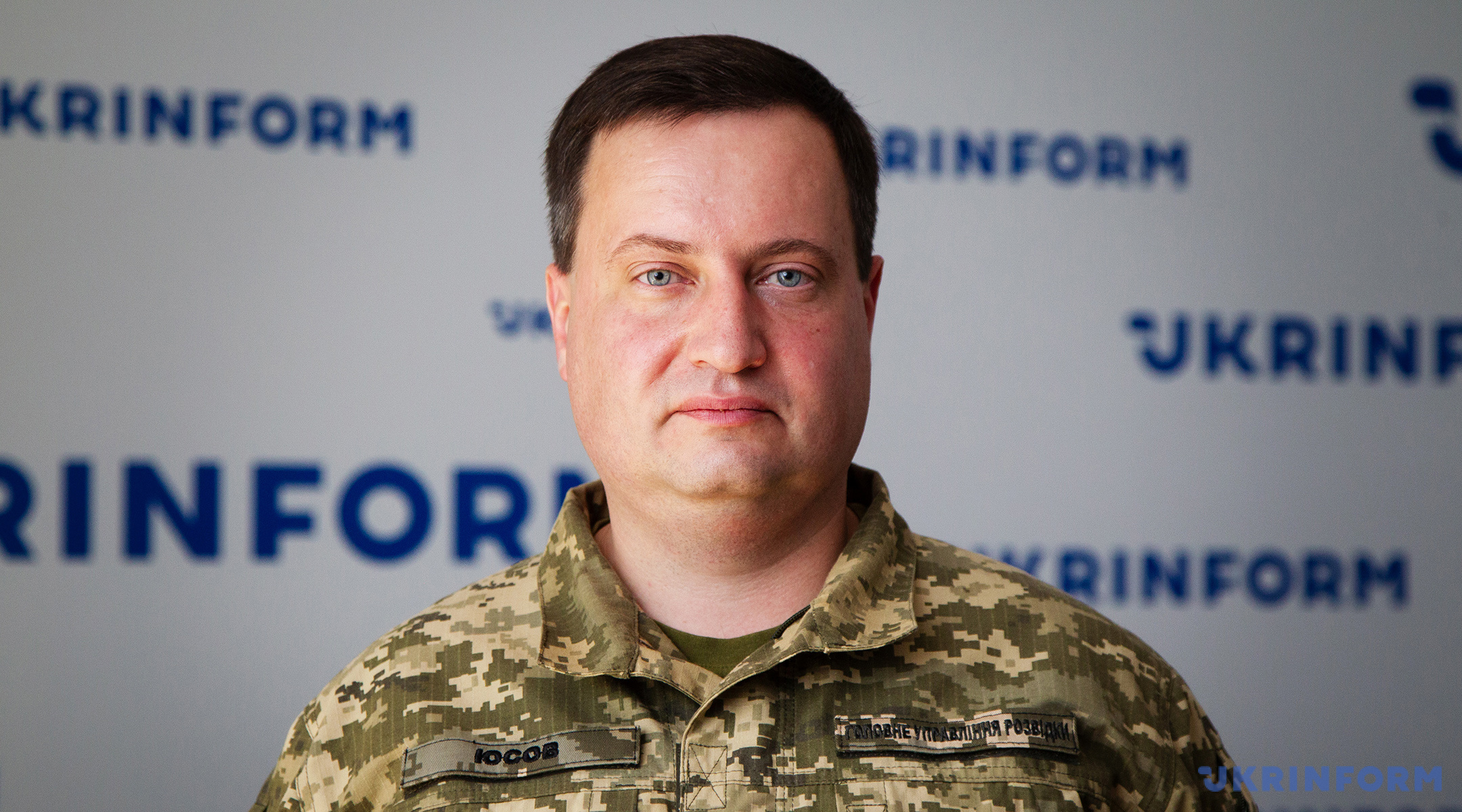
THE TASK OF RUSSIAN PROPAGANDA IS TO DEMOTIVATE AND SPLIT UKRAINIANS
- Information warfare. Describe it at this stage. In which areas are Russians most actively working to split Ukrainian society?
- The key directions of Russian propaganda and special information and psychological operations (IPO) against Ukrainians remain unchanged: to try to demotivate, split society, undermine confidence in the Armed Forces and political leadership of Ukraine, and exaggerate the problems that exist in the country. For example, manipulations around the eloquent topic of corruption: "what are you fighting for?", "what's the point, if there is no point, give up", "they will steal everything", "America will not help you", and so on. These narratives did not work at the beginning of the full-scale invasion, but now the Russians are trying to methodically convey them to Ukrainian society.
Russia also uses various painful topics, including the tragedies of the families of prisoners of war. Pay attention to the animalistic maniacal taste with which they pick up and broadcast all, even the smallest, public actions of the families of Ukrainian prisoners of war. Nothing is sacred to Russian propaganda. Demotivating and splitting Ukrainians is their task. And, unfortunately, there are people in Ukraine who consciously or unconsciously continue to pick up Russian propaganda narratives from time to time.
- What narratives do Russians spread in the West?
- The task of the Russians in the international arena is to undermine faith in Ukraine's victory. We are now witnessing the spread of narratives that Ukraine will allegedly never defeat Russia because Russia is too big, and the world is tired of helping Ukrainians in this war.
- How does this affect the mood of foreigners?
- It's worth noting that, in general, this affects the mood of foreigners much less than Russians would like. And certainly less than before the outbreak of a full-scale war, when narratives were spreading that Ukraine would not survive.
However, of course, they are not reducing their efforts, because no matter how much money is spent on agents of influence, spy networks, information campaigns, and the spread of relevant information waves, it is still less than the cost of full-scale military aggression, i.e., the cost of weapons and personnel on the front line.
Russia remains extremely active in this field, continuing to spend serious resources and discovering new areas of pressure on Ukraine's partners. For example, the recent events in Africa [we are talking about coups d'état in African countries]. It can be stated quite clearly that Russia is also behind them and is trying to use this as an influence on Ukraine's European partners to reduce their support. This is one example. And there are many such examples.
However, Russia's influence in the world has become less. Numerous expulsions of so-called Russian diplomats from Europe and the curtailment of the Russian media network in the world confirm this.
RUSSIAN IPO IN UKRAINE HAS INTENSIFIED SINCE THE INTENSIFICATION OF ACTIONS BY THE UKRAINIAN DEFENSE FORCES
- In recent months, have you observed an intensification of the enemy's IPO in Ukraine?
- Since the Ukrainian Security and Defense Forces intensified their actions and continued to liberate our territories, we have certainly seen this. This can be seen in Russian publics, in the narratives that Russians spread around the world. Of course, they are trying to promote their narratives in the Ukrainian information space as well. In particular, Russian IPO manifests itself in intimidating Ukrainians with the use of nuclear weapons and man-made disasters.
One of the latest examples: Russian Telegram channels wrote that the time and day when Vladimir Putin ordered to blow up the Zaporizhzhia nuclear power plant is already known. We can say that this is an example of successful hostile IPO, because many Ukrainian media outlets, including respectable and reputable ones, spread this information with reference to Russian anonymous Telegram channels. In other words, it was an inexpensive and effective way to sow panic. Fortunately, however, many responsible media outlets further verified this information and then refuted it. We managed to deflect this situation.
NOW THE IMMEDIATE THREAT OF A TERRORIST ATTACK ON THE NUCLEAR POWER PLANT HAS DECREASED
- You mentioned ZNPP. What is the situation there now? How high is the risk of a plant explosion?
- Zaporizhzhya Nuclear Power Plant is a major nuclear power facility in Ukraine that has been seized by Russian occupiers and terrorists. This means that neither international nor Ukrainian nuclear safety standards are observed there. Accordingly, we cannot say that there is safety and order there. But, yes, compared to a few months ago, the immediate threat of a terrorist attack has decreased at this stage.
However, the Russian military contingent, in particular the Rosgvardia, is still on the territory of the station. They have carried out mining operations. The only questions that remain are how the occupiers will implement the given scenario.
At the moment, we can state that the complete safety of ZNPP and the surrounding areas will be guaranteed after the de-occupation and liberation from Russian invaders, and returning to legitimate Ukrainian control.
- Did the Russians place remote detonation explosive devices on the territory of the plant? Are the invaders considering the option of blowing up ZNPP after leaving its territory?
- The mining carried out by the Russians provided for such a scenario, among other things.
RUSSIA'S DEPLOYMENT OF NUCLEAR WARHEADS IN BELARUS DOES NOT SIGNIFICANTLY AFFECT THE SECURITY SITUATION IN UKRAINE
- In the context of nuclear and nuclear safety. Kyrylo Budanov recently stated that the first nuclear warheads are already on the territory of Belarus. How close are they to the Ukrainian border?
- This does not significantly affect our security situation, because Ukraine has a huge border with the Russian Federation. Russian nuclear weapons have long been deployed along this border. There is nothing new for us in this regard, as there is nothing new for NATO member states, since Russian nuclear weapons in the Kaliningrad region have long been deployed near the borders of the European Union and NATO. This is mostly nuclear blackmail and raising the stakes, but of course, it should be taken into account.
- Doesn't the intelligence community currently record any active activities around these warheads?
- No, there is no such information at the moment.
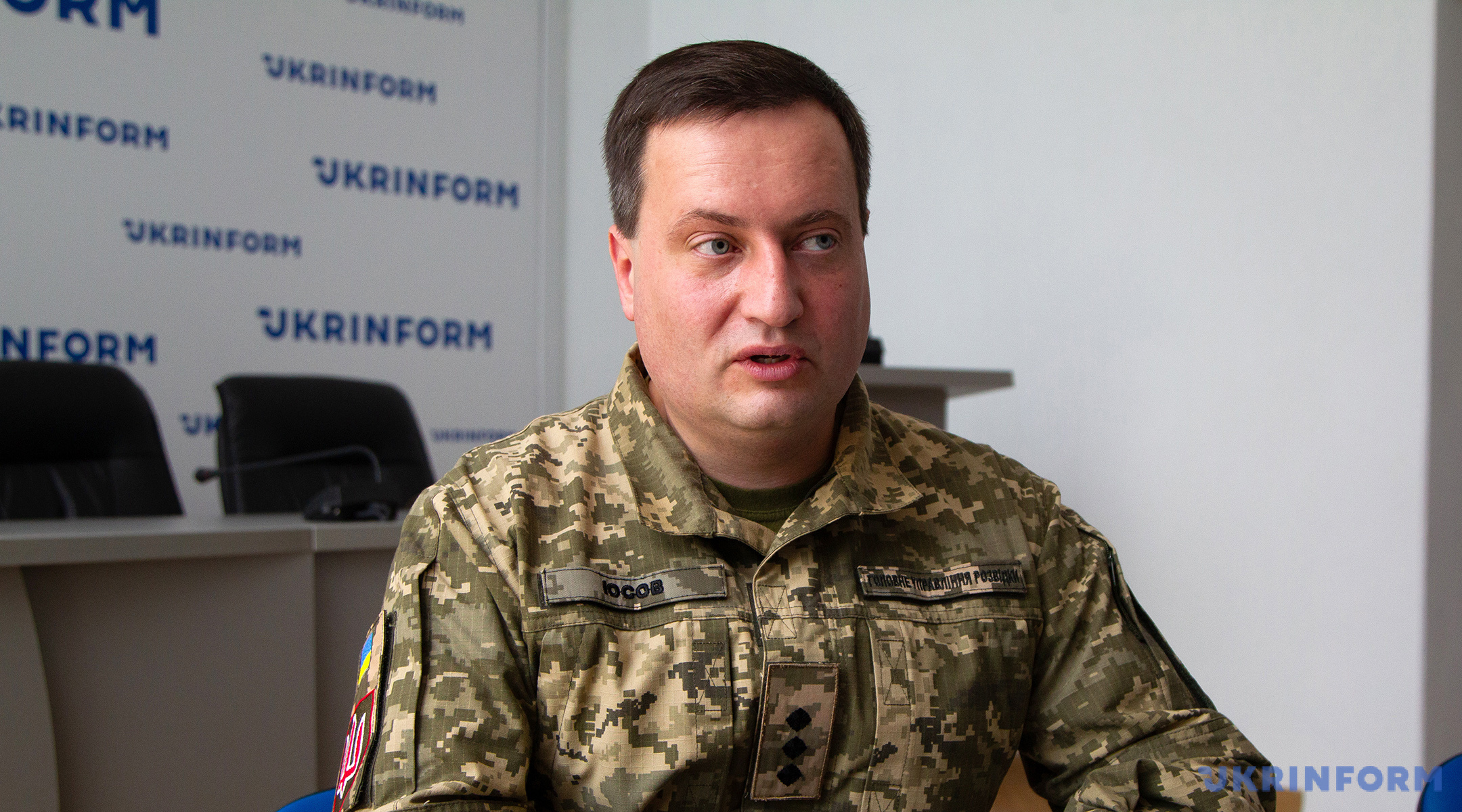
THE THREAT OF MISSILE ATTACKS ON UKRAINE'S ENERGY INFRASTRUCTURE REMAINS
- Last year, from the beginning of the heating season, Russia resorted to regular shelling of Ukraine's critical infrastructure. What should we expect this year - a similar scenario?
- Every time the scenarios are different. Last year we saw extremely massive missile attacks. In general, since the beginning of the full-scale Russian invasion, the peak of one-time missile launches on the territory of Ukraine was 120. Now we are not seeing such massive missile attacks. This is largely due to Russia's use of its missile stockpile and limited production capabilities.
But, yes, the threat of missile strikes, in particular against energy infrastructure, remains. It is clear that the terrorist state will not abandon this practice.
RUSSIA REGULARLY USES NEWLY DEVELOPED MISSILES DURING SHELLING
- Despite international sanctions, Russia continues to produce drones and missiles. According to Ukrainian intelligence, in what quantities are they produced? What types are they?
- As for "Kalibr", it's dozens per month, and "Iskander" - a smaller number of units. These are rather limited production capabilities that do not cover costs and do not allow us to restore the stocks available before February 24. They are covering some of the gaps with gray imports and smuggling, but this does not fully meet the needs of the Russian military-industrial complex.
- How often do the Russians use newly manufactured drones and missiles during the current shelling?
- Newly manufactured missiles are used regularly. Speaking of drones, they are all from new batches. But these are mostly not Russian drones, if we are talking about Shahed. These are all large-scale assemblies of Iranian attack drones with certain elements and materials produced directly in Russia.
- In general, what is the current state of the Russian military-industrial complex? To what extent do they still have the capacity to wage an aggressive war against Ukraine?
- To a large extent, the Russian military-industrial complex is now focused on decommissioning and, if possible, modernizing or restoring old Soviet equipment. Opportunities for deep modernization of new weapons production have been significantly reduced due to the imposition of sanctions.
In fact, Russians have serious problems with modern optics, electronics, chips and circuits. And today, there is no clear source that would allow them to solve these problems.
The enemy is also looking for shells for multiple launch rocket systems and artillery, although these are not high-tech and modern weapons. This indicates a certain crisis in the capabilities of the Russian military-industrial complex.
Outwardly, the Putin regime is trying to prove that they can continue the war against Ukraine for years, but in reality, this information is exaggerated for propaganda purposes.
Already on the territory of the Russian Federation, the Putin regime is trying to maintain the appearance that nothing is happening, that life is quiet, and that the war is somewhere far away.
That is, Russians are not preparing their society for full mobilization. Even if such a mobilization were to take place now, they fear the consequences and public sentiment, and have problems with supplies. Let's imagine a new wave of mass mobilization in Russia. There will immediately be issues of training, weapons, and ammunition. The enemy has certain problems in all these areas.
However, Russia should not be underestimated. After all, the enemy still has a huge mobilization potential. Of course, it is a question of quality... But also of quantity.
THE LEGION "FREEDOM OF RUSSIA" AND THE RUSSIAN VOLUNTEER CORPS CONTINUE TO PERFORM COMBAT MISSIONS ON THE DEMARCATION LINE
- In addition to the crisis in the Russian military-industrial complex, we are witnessing internal conflicts in Russia. In May, sporadic fighting broke out in the Belgorod region, with the Legion "Freedom of Russia" and the Russian Volunteer Corps claiming responsibility for it. For some time, there were reports of the successes of Russian volunteers, but now there is virtually no information about their activities. Do you know anything about the current work of the LFR and RVC?
- Yes, I know. They continue to perform combat missions on the contact line, destroying the enemy and working together with the Ukrainian Security and Defense Forces. These are combat units that have significant achievements. Unfortunately, they have also suffered losses. However, they continue to help Ukrainians destroy the enemy and defend our land.
- Representatives of the RVC claimed that they captured Russian soldiers and handed them over to the Ukrainian exchange fund. Is this information true?
- Yes, this information is true.
- Can we talk about the number of such prisoners?
- We do not comment on the numbers, but these are not isolated cases when the RVC and the Legion "Freedom of Russia" took Russian military prisoners.
- How do the Russian authorities react to the continued activities of the respective groups? What is the current atmosphere in the Russian government offices?
- The atmosphere is one of understanding the strategic impasse and finding a way out of it with the least bad scenario. They realize that the decision to launch the so-called SMO [special military operation] was idiotic and disastrous for the Russian Federation and the Putin regime. They also realize that there is no easy way out of this situation. Depression, sadness - this is how you can characterize the atmosphere. I think if you look at the faces of many Russian officials at various events, you can understand everything.
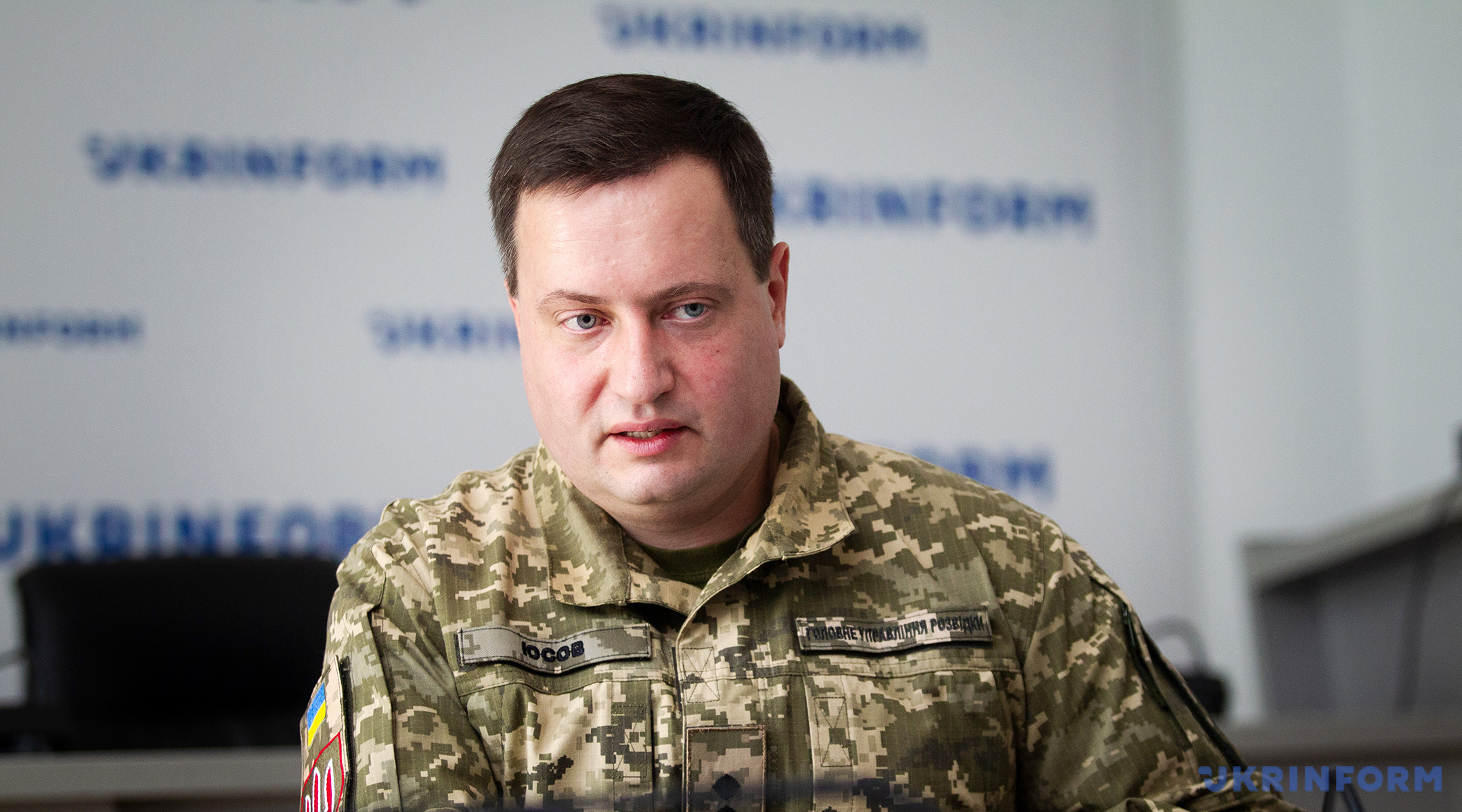
WE CAN 100% CONFIRM THE DEATH OF UTKIN IN THE PLANE CRASH, BUT NOT ALL QUESTIONS ARE CLOSED ABOUT PRYGOZHYN
- On August 23, a plane carrying representatives of the Wagner PMC, including the leader Yevgeny Prygozhyn and his deputy Dmitry Utkin, crashed in the Tver region of Russia. According to Ukrainian intelligence, did the Russian authorities organize the liquidation of the PMC leadership?
- At the moment, we can speak with 100% certainty about the confirmed death of Utkin and some other passengers. As for Prygozhyn, let's just say that not all the questions have been answered yet. As for the organizers, let's think about who else could benefit from this? I think everything is pretty obvious here.
- Can you elaborate on Prygozhyn? Does Ukrainian intelligence doubt his death?
- I'll just focus on the fact that we can confirm the death of Utkin and several other associates of Prygozhyn. As for the PMC leaker himself, I think we need to wait some more time.
- So theoretically, it could appear somewhere?
- We have to operate with confirmed facts, we have to wait...
Angelina Strashkulych, Kyiv
Photo by Kyrylo Chubotin
